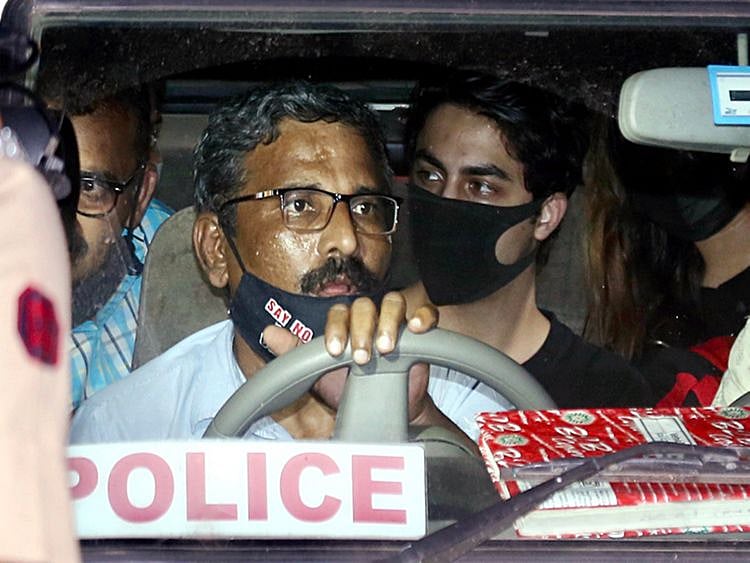Aryan Khan should not be in jail. Here is why
Proportionality has gone out of the window here because it involves Shah Rukh Khan’s son

It’s no secret that India’s justice system is slow. People wait for years, if not decades, to get verdicts from courts, whether it’s a divorce or a murder case.
The process is the punishment in India and the latest victim is Bollywood superstar Shah Rukh Khan’s son, Aryan.
The 23 year old will stay in jail till at least October 20 in a drugs case where all the charges against him are bailable offences. This is after his bail plea was first denied by a sessions court in Mumbai last week and then a special court, which heard the matter, decided to reserve the order for one whole week.
Aryan has been in custody since Oct. 2, when the Narcotics Control Bureau, or the NCB, raided a cruise ship off the Mumbai coast and arrested Aryan and others in a drug bust.
I don’t hold a brief for Aryan Khan and I don’t condone the use of drugs. But proportionality has gone completely out of the window in this matter because it involves Shah Rukh Khan’s son.
Zero recovery
The NCB says nothing was recovered from Aryan personally, but that Aryan’s WhatsApp chats “revealed his links with drug peddlers.” You would think a drug lord has arrested but at the moment this case hinges on 6 grams of charas found on someone who is not Aryan Khan.
In a critical judgement back in 1977, India’s Supreme Court ruled that bail should be the “rule” for the accused and that they should be remanded in jail only in exceptional circumstances.
The judgement has been reiterated over the years in several orders of the top court though generally bail is harder to get if the crime is heinous like murder. But, as former Surpeme Court judge Madan Lokur recently admitted, this is hardly followed by courts.
The most stark example of that was the case of activist Father Stan Swamy, who died in jail earlier this year while waiting for bail. The 84 year old was arrested under anti terror laws and even with no sign of a trial starting anytime soon, did not get bail despite suffering from Parkinson’s among other illnesses.
Denial of bail
There are countless such cases. Comedian Munavar Faruqui was repeatedly denied bail for a joke he did not even crack.
One of Amazon Prime Video’s senior most executives in India, Aparna Purohit, faced a series of FIRs for alleged insults to deities in the Saif Ali Khan OTT series called ‘Tandav’.
A judge at the Allahabad High Court denied her bail observing that “actions of the applicant being against fundamental rights of majority of citizens, her fundamental right of life and liberty cannot be protected by grant of anticipatory bail”.
In some cases even those who are lucky enough to get bail, from the Supreme Court - no less - are released only after inexplicable delays. This prompted the Chief Justice of India to remark that “we look to the skies for pigeons to communicate the orders” to jail authorities.
Nearly 70% of India’s prison population is made up of undertrials. Lack of judges and poor policing has complicated matters further.
Civil liberties are the heart of our democracy but unfortunately those who have to protect them have let us down.
Network Links
GN StoreDownload our app
© Al Nisr Publishing LLC 2026. All rights reserved.